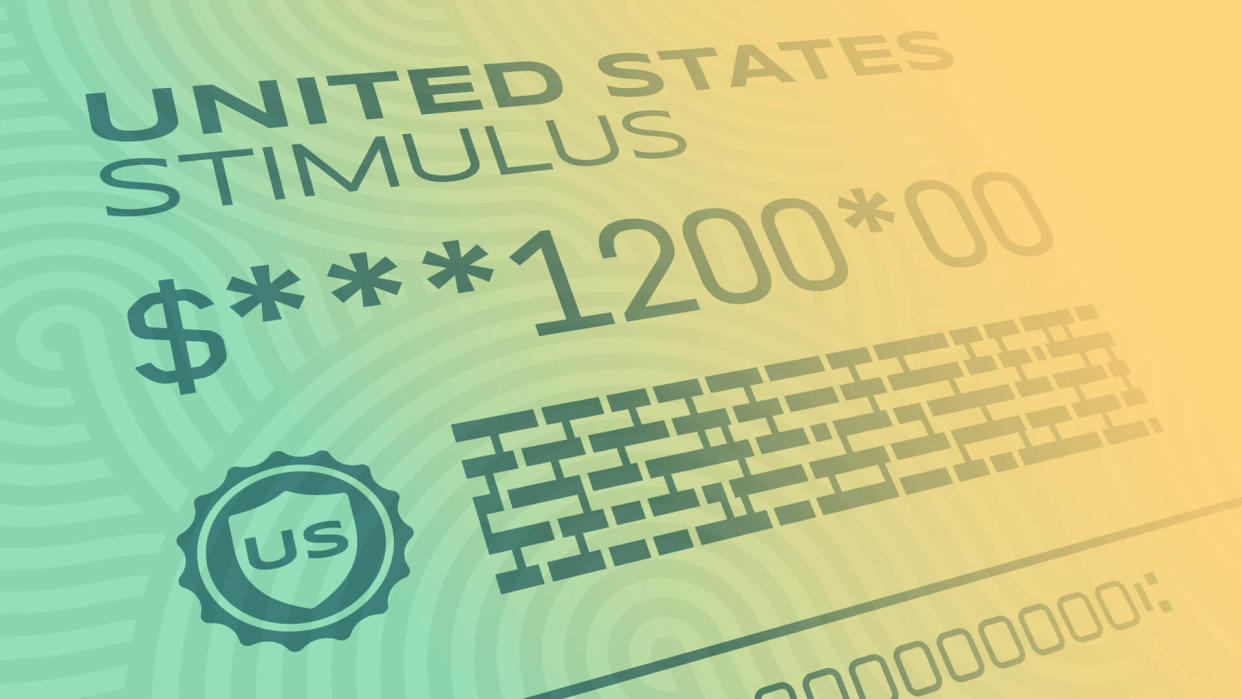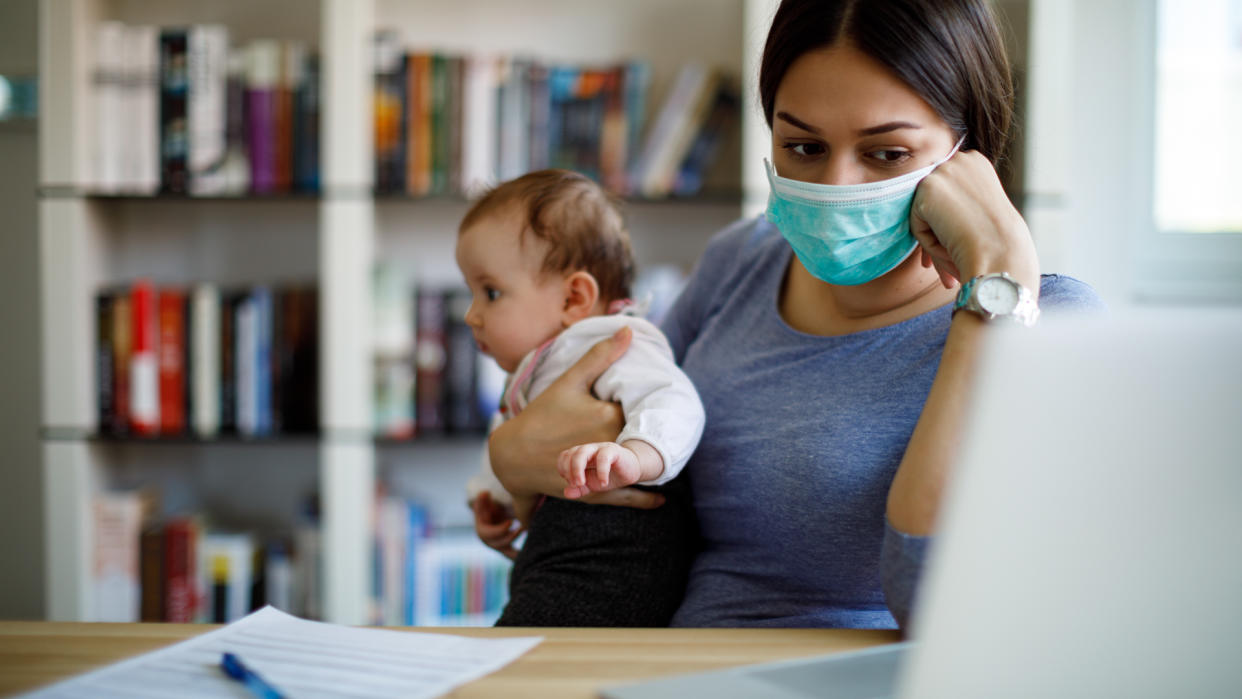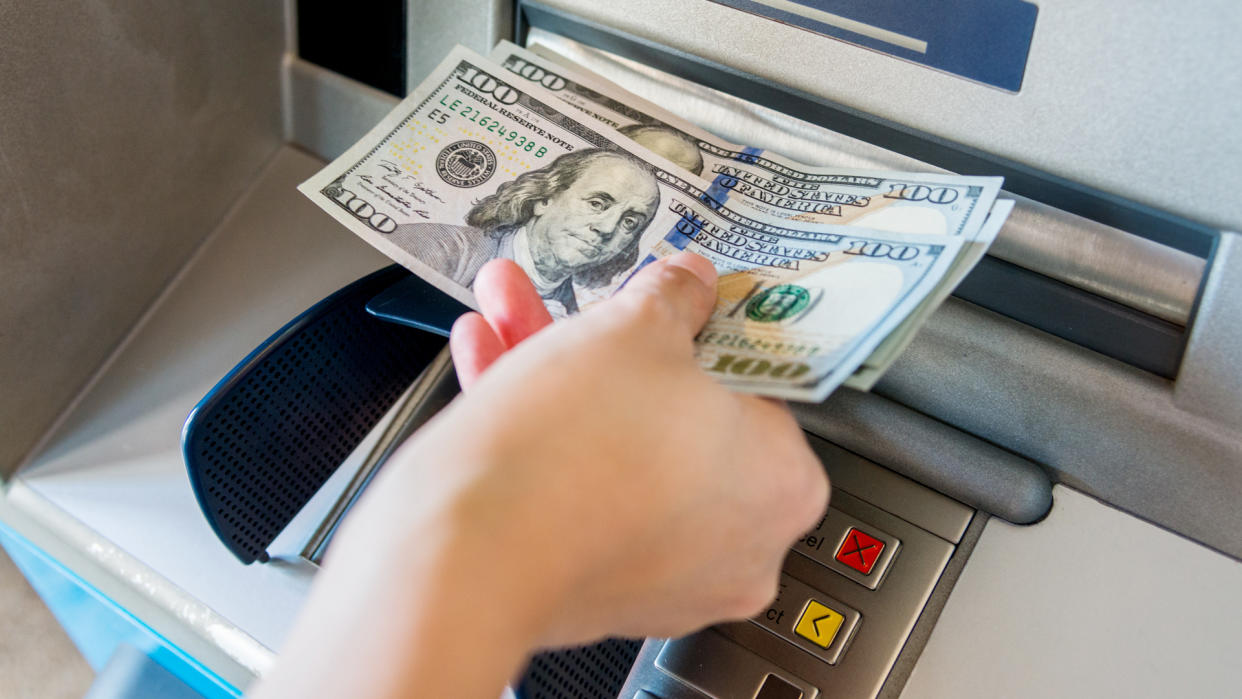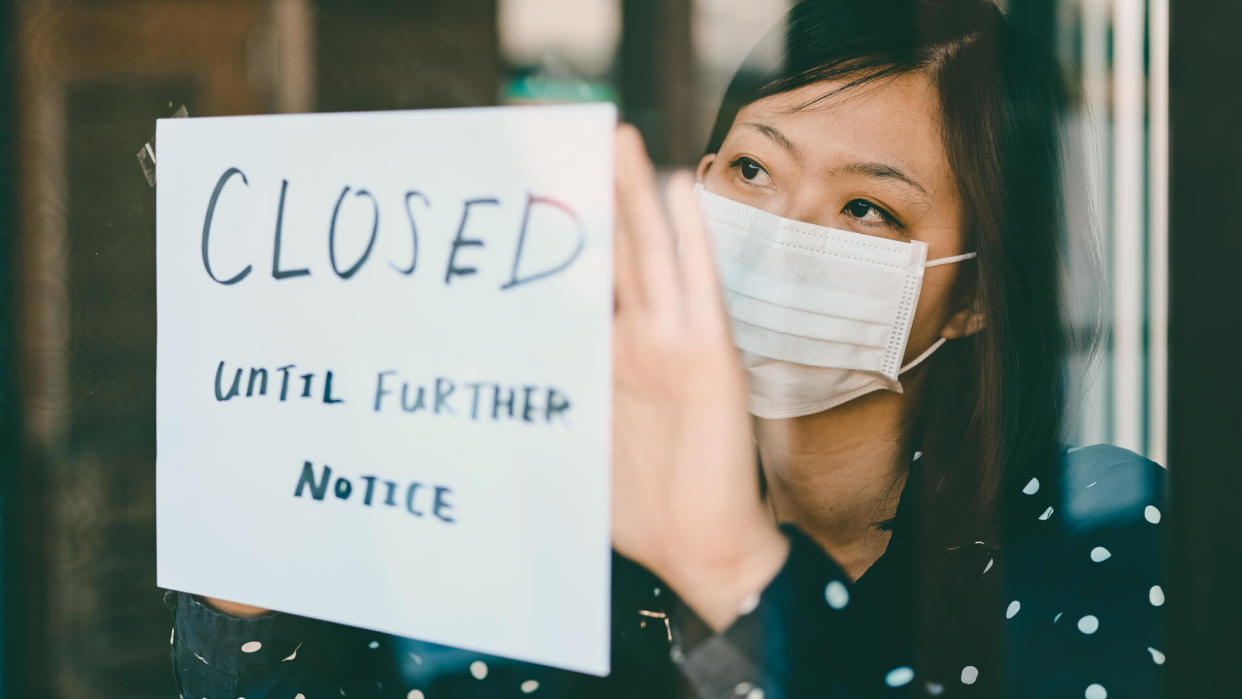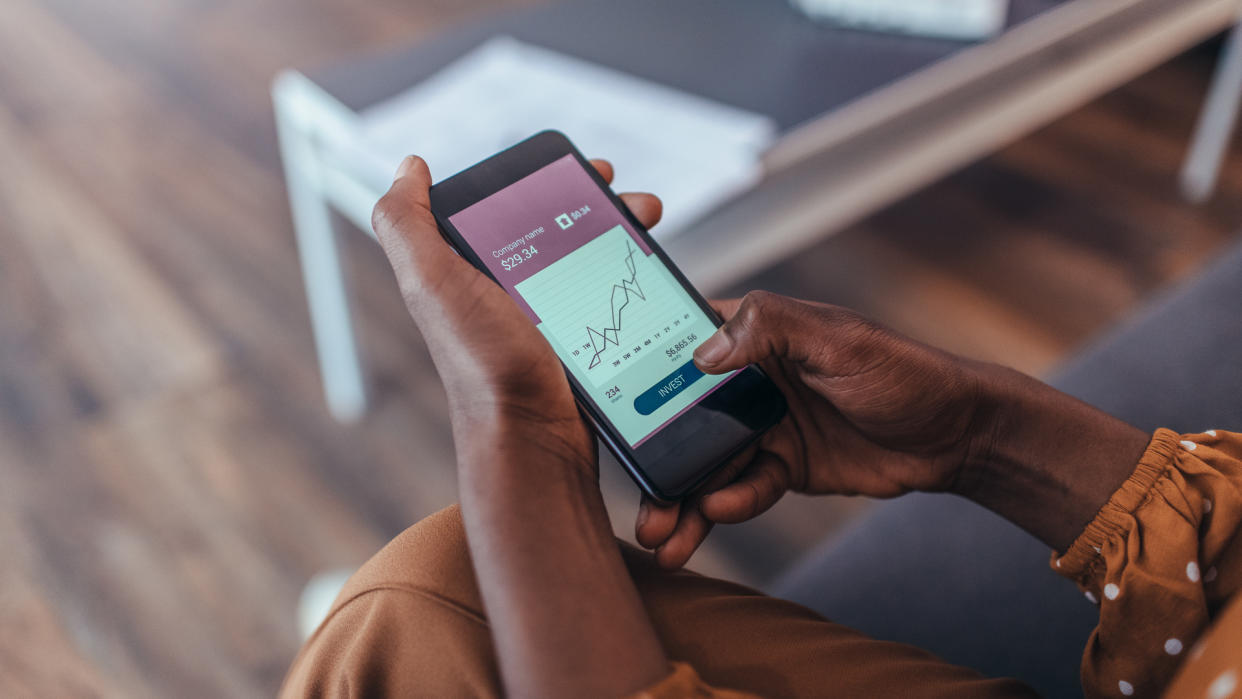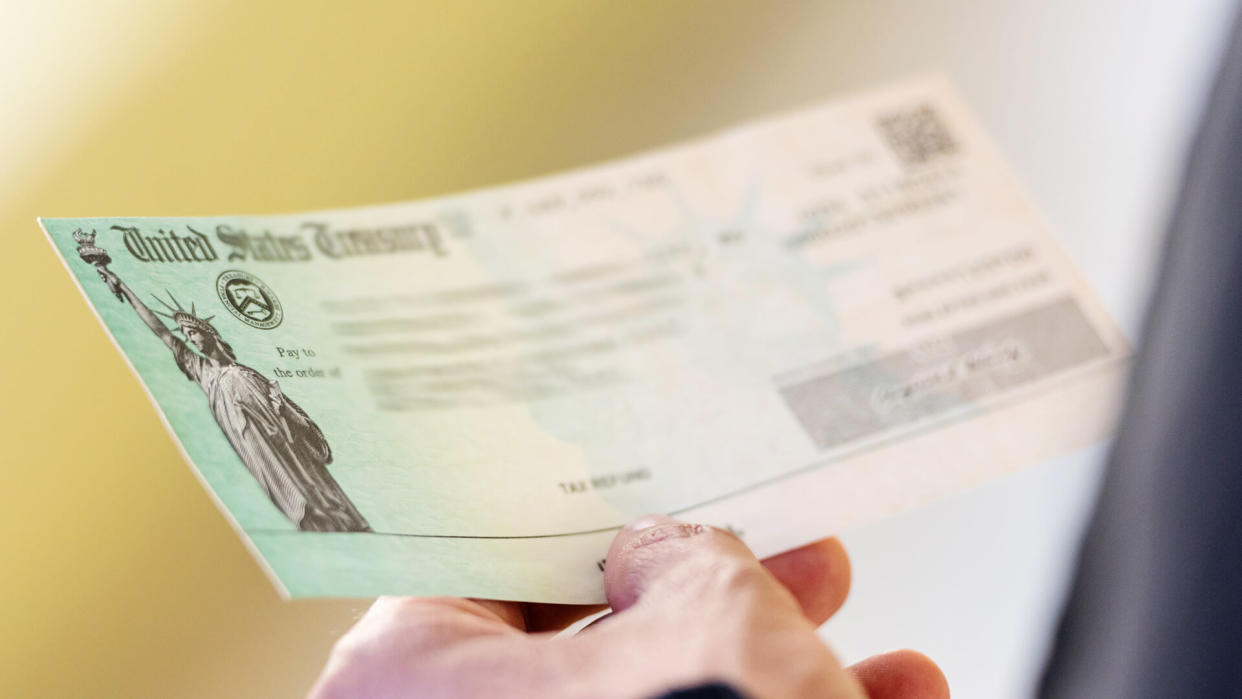Where’s My Second Stimulus Check? 32 Answers to Your COVID-19 Money Questions
The coronavirus pandemic has led to widespread job loss and financial uncertainty — even for those who are still employed — due to market volatility and a global economy that’s been crushed by closures and lockdowns. With so much upheaval, many Americans are left struggling to figure out their best financial moves. From losing a job to retiring and life in between, here are the answers to some of the most pressing coronavirus money questions.
Last updated: Sept. 18, 2020
Will There Ever Be a Second Stimulus Bill?
Congress has thus far been unable to agree on exactly what a second round of relief funding would entail. Democrats previously proposed a $3 trillion bill and then suggested $2 trillion in relief, while Republicans proposed a $300 billion “skinny” relief bill. Some experts, including Jordan Weissmann, Slate’s senior business and economic correspondent, believe a second relief bill — and the second stimulus check that would come with it — may never pass.
“We’re in this place where there’s not much political incentive on any side right now to strike a deal before the election,” he said on the “What Next” podcast. “They keep saying there won’t be a deal before November, and frankly, I don’t see how we’re any closer to a deal after November unless, maybe, at that point, Democrats would say screw it.”
How Does the Payroll Tax Holiday Work?
President Donald Trump issued an executive order that suspends the collection of Social Security payroll taxes from Sept. 1 until the end of the year for workers making less than $4,000 for any bi-weekly pay period, or $104,000 annually. If you meet this requirement, it means that your share of Social Security taxes — 6.2% of your income — won’t be taken out of your paycheck for the rest of 2021.
However, these taxes are only being deferred rather than forgiven, so as it stands, they will need to be paid back at a later date. Additionally, private businesses may opt out of the payroll tax holiday and continue to withdraw these funds from your paycheck.
How Many Companies Are Actually Using It?
The payroll tax break has been opposed by many businesses, so most Americans won’t be getting any benefits from Trump’s executive order, Politico reported. A number of major trade associations, including the U.S. Chamber of Commerce and the National Retail Federation, have said they will not be participating. These businesses believe it is not in their employees’ best interest — although employees will save on taxes now, they will have to pay double the amount of Social Security payroll taxes beginning in January to pay back what has been deferred by April 30.
According to Politico, “it’s hard to find employers making use of it, aside from much of the federal government.”
Does My Health Insurance Cover Coronavirus Testing and Care?
All comprehensive healthcare plans cover coronavirus testing 100%, as well as any visit to the emergency room, doctor’s office or urgent care related to the testing. Under the CARES Act, your insurer also provides free antibody testing. How much you pay for treatment depends on your insurer. Some health insurance providers are waiving all co-payments, co-insurance and deductibles for all COVID-19 treatments but others are not, so it’s important to check with your provider to find out what is covered.
Find Out: The 50 Cities Best Prepared To Reignite Their Economy and Job Market
How Much Will a Coronavirus Vaccine Cost?
There’s no way to know for sure how much a coronavirus vaccine will cost, but procurement agreements the federal government has been making with several pharmaceutical companies as part of Operation Warp Speed — the Trump administration’s push to have a vaccine widely available by 2021 — can give some insight. Based on the publicly released deals, the price of the vaccine will likely be between $4 and $20 per dose, NPR reported.
However, those with health coverage will likely be able to get the vaccine for free. U.S. government officials have stated that they expect health insurance companies to cover the cost of coronavirus vaccines without charging copays, ABC News reported.
How Can I Financially Prepare For a Potential Layoff?
“Take a look at what short-term savings you have and build a fund to cover at least six months’ worth of expenses,” said Chad Parks, founder and CEO of Ubiquity Retirement + Savings. “If you are saving for retirement but don’t have short-term emergency savings, temporarily divert contributions from retirement savings to short-term savings. If you don’t have either, build your short-term savings first.”
How Can I Stay Afloat Financially If I've Lost My Job?
More than 56 million Americans have now filed for unemployment, so this is likely a question that many of people have right now. Mark E. Bradford, CFP, senior vice president and wealth director of Bryn Mawr Trust Wealth Management in Berwyn, Pennsylvania, offers the following advice: “Revisit your spending and budget. Eliminate unnecessary expenses and build up cash reserves. You may also want to restructure your debt. If available, plenty of government programs may be able to provide some support as a result of the recent stimulus packages passed by Congress. You may be able to negotiate with some lenders and vendors, but you may not want to do this unless absolutely necessary as doing so could impact your credit score.”
What Is Unemployment Insurance and How Can I Get It?
Unemployment insurance programs provide you with money if you lose your job through no fault of your own. Each state has its own unemployment program with its own eligibility requirements. You may be able to apply online or by phone, depending on the state.
More Info: How To Get the New $300 Federal Unemployment Supplement — And Other Essential Benefits
How Much Unemployment Will I Get?
The maximum weekly benefit varies by state. Benefits were temporarily expanded by the CARES Act, but the supplemental unemployment benefits mandated by the act expired in July. In August, President Trump implemented the Lost Wages Assistance program as a short-term replacement for the previous $600-a-week emergency federal supplement. Under this program, most unemployed workers will now receive $300 in federal funding in addition to their usual benefit amount; states may also provide an additional $100. As of Sept. 16, 49 states and Washington, D.C. signed onto the program. South Dakota said it would forgo the federal funds because it had recovered 80% of its job losses, The New York Times reported.
Can I Get Government Assistance If I Am a Freelancer or Small-Business Owner?
Pandemic Unemployment Assistance — one of the provisions of the CARES Act — expanded the eligibility for unemployment insurance benefits to nontraditional workers such as independent contractors, gig workers and the self-employed. This assistance program is in effect through Dec. 26 for those who have lost work as a direct result of the coronavirus. You will likely have to show evidence of your past income — usually a 1099 form from a previous tax year — to receive this aid.
Can I Get Government Assistance If I Am Furloughed?
Unemployment benefits for furloughed employees vary from state to state, CNET reported. For example, Washington State does allow furloughed workers to apply for unemployment benefits, but decisions about eligibility are made on a case-by-case basis.
What If I Can't Afford To Make My Student Loan Payments?
If you have federal student loans, you do not have to make payments until 2021. If you have private student loans, you might qualify for student loan relief implemented by your state. Several states have reached agreements with a number of private lenders that allow for at least 90 days of forbearance and the waiving of late fees, U.S. News reported. Unlike federal student loans, these protections are not implemented automatically, so you will need to reach out to your lender to put a pause on your payments. Even if you live in a state that did not implement student loan relief measures, it’s still worth reaching out to your lender to find out what relief you may qualify for.
If You’re Looking: 38 Companies Hiring for Remote Jobs Right Now
What If I Can't Pay My Mortgage?
Under the CARES Act, you may be eligible for forbearance. This is when your mortgage servicer or lender allows you to pause or reduce your payments for a limited period of time. Under the act, homeowners can defer payments for up to six months, with the option to extend for an additional six months for those who remain in good standing with their lenders.
Keep in mind that this doesn’t cancel out what you owe over that time period, so you’ll have to make up for any missed or reduced payments in the future. If you took advantage of this benefit early on, you may begin having to restart making payments in September.
Should I Refinance My Mortgage?
Mortgage rates hit a record low in September, MarketWatch reported, so it’s certainly possible that refinancing could save you money. To find out if it’s worth it for you, crunch the numbers to see if you will be saving on your monthly payment. Keep in mind that you have to pay a fee to refinance, so make sure you are staying in your home long enough for refinancing to pay off. You will also need to change the terms of your mortgage loan, so make sure the new terms fit within your current financial goals.
How Worried Should I Be About Market Volatility?
If retirement is not in the near-term for you, you shouldn’t panic, Parks said.
“Retirement plan account balances are all over the place,” he said. “Remind yourself that volatility is OK. You have some time before you are going to need those funds.”
Should I Be Continuing To Contribute To My 401(k)?
“Yes, especially if you have an employer match and you have the cash flow today to earmark for retirement,” Bradford said.
Should You Ask For a Raise During the Pandemic? Here’s What 10 Experts Say
What If My Employer Is No Longer Offering a 401(k) Match? Is It Still Worth Contributing To?
“If an employer has chosen to suspend its match, it is likely prudent to help weather the storm and maintain its current employee base,” Parks said. “Reduction in a long-term benefit is worth the short-term trade-off. For individuals, this loss of a company match should not modify your savings strategy. It will not make or break your retirement.”
“Even if your employer is not offering a match, if you are saving in your 401(k), you are gaining a government match,” he continued. “Those tax dollars are going out the door one way or another. By saving in your 401(k), you are diverting those tax dollars from the government to your retirement savings.”
How Do the CARES and HEROES Acts Impact My Retirement?
“With the passage of the CARES Act and HEROES Act, Congress recognized that retirement savings is one of the more readily available assets,” Parks said. “Restrictions around accessing those assets exist to protect your savings for the future. Because of the extraordinary circumstances surrounding the pandemic, the government made temporary provisions making it easier for people to tap into their retirement accounts. These regulations were not meant to change what these retirement accounts were intended for. This was a temporary change of policy for an emergency situation.”
“Moving forward, we will likely see some more meaningful legislation surrounding retirement savings,” he continued. “It is not sustainable to dip into our long-term savings every time there is a short-term crisis.”
I Took Out a Loan Against My 401(k) During the Pandemic — Was This a Mistake?
“If you experienced hardship and took a loan from your 401(k), hopefully, you are still gainfully employed,” Parks said. “If you take a loan from a retirement plan and are separated from that employer, you will need to repay that loan within a certain period of time — otherwise taxes and penalties will be due. The CARES Act allows more flexible repayment options during the current pandemic. Research and consult the regulations to see what policies apply to your situation.”
Can I Afford To Retire Right Now?
Bradford said that when it comes to whether or not you can retire, “it depends.”
“This is the No. 1 question that people are asking coming out of this crisis,” he said. “It really comes down to your specific financial situation. The best way to answer this question is to work with advisors to develop a financial plan for retirement. That starts by understanding your values, vision and objectives. What does retirement look like? It is different for everyone. Once the goal is qualified and quantified — what spending looks like today and what it will be in retirement — it is important to align resources such as investments, pensions, 401(k) [plans] and Social Security, then determine the gaps that exist. It requires a holistic approach.”
Should I Revisit My Asset Allocation or Stay the Course?
“Goals, time horizon and risk tolerance should dictate asset allocation, not market performance,” Bradford said. “You may want to take a ‘buckets of money’ approach with larger cash reserves and conservative assets for the shorter term. Tax-loss harvesting may also make sense to get into a better allocation more aligned with your risk tolerance. Historically, asset allocation drives 90-plus percent of your overall return.”
Should I Be Investing More Right Now?
If you are not nearing retirement and can afford to invest more — maybe you are still employed and have a healthy emergency fund — you should consider your options.
“If you have a longer savings horizon, you may consider a higher risk scenario to take advantage of market downturns, upswings and corrections,” said Teresa Hassara, head of workplace solutions at MassMutual Financial Group.
Check Out: Which Companies Are Winning the Pandemic?
What If I'm Already Retired? Should I Have More Bonds in My Portfolio During These Times?
“If you are retired, it can be beneficial to have three to five years’ worth of living expenses in bonds,” said Dave Totah, CFP, partner and senior wealth advisor at Exencial Wealth Advisors. “This ‘war chest’ allows you to make it through market downturns without having to sell stocks at a low point.”
Is Forgoing Required Minimum Distributions the Right Move If You Can Afford It?
The CARES Act suspended the RMD requirement for this year, but you might be wondering if it’s the best move for you to forgo it.
“It depends, but probably yes,” Bradford said. “A financial plan would help answer this one. Roth conversions could make sense depending on valuation, view on future taxes, money to pay and time horizon.”
What Happens To My Money If I Die?
“We are revisiting estate plans often, and clients are going through their planning more focused than ever before,” said Monica Sipes, CFP, partner and senior wealth advisor at Exencial Wealth Advisors. “My advice? Make sure you understand your estate plan; who would be in charge of what and that you feel comfortable with having the right people in the right roles. Make sure you review your plans frequently and that they are aligned with your wishes.”
Is My Money Safe in a Bank?
Although some bank branches may be closed or only offering limited services, your money is still secure in a bank. The Federal Deposit Insurance Corporation covers up to $250,000 in each bank account, which means that even if your bank fails, your money is fully protected by the U.S. government.
I'm Not Driving as Much — Do I Need To Keep My Car Insurance?
Even if you’re not using your car as much as usual, you should still maintain your car insurance policy. In many states, this is a requirement. Many car insurers have been offering lower rates or a percentage of your premium back to account for less time on the road, but if yours hasn’t done this automatically, give them a call to see if you can have your payments temporarily lowered or get refunded for part of your premium — especially if you are still working from home. If your insurer won’t lower your payment, consider shopping around for new car insurance to see if you could save with a different provider.
Do I Have To Pay Back My Stimulus Check?
You do not need to pay your stimulus check back. The stimulus checks “are considered an advance refund of a 2020 tax credit, not a loan,” Neal Stern, a member of the American Institute of CPAs Financial Literacy Commission, told MarketWatch.
Is Now a Good Time To Buy a Home?
The real estate market remains strong despite the coronavirus crisis, Money reported. Although you can expect home prices to be at or over the asking price in many cases, prospective homebuyers can benefit from low mortgage rates. It’s an especially good time to buy in urban areas, where prices may actually be lower due to a drop in demand.
Can I Get Money Back If I Cancel Travel Plans Due to the Coronavirus?
If the airline cancels your flight, you are eligible for a refund, but if you choose to cancel your trip, you might not be able to get one, CBS reported. You can, however, likely get a voucher to be used for future travel. Cruises are also offering vouchers, sometimes for more than you originally spent.
These rules apply even if you have travel insurance in most cases, CNBC reported. Standard travel insurance only applies to cancellation due to illness by you or a family member before or during the trip — not a fear of becoming ill. However, if you have “cancel for any reason” coverage, you should be able to get a refund.
When Will the Economy Recover?
Expert projections on when exactly we will recover from the coronavirus vary, but it will likely take some time.
Gita Gopinath, chief economist at the International Monetary Fund, said that the global economy will likely not recover until at least the end of 2021, CNBC reported. This aligns with Dr. Anthony Fauci’s recent prediction that life may not go back to “normal” until the end of next year.
How Can I Help Others Who Are Struggling Financially Due to the Coronavirus?
There are a number of charities you can support during this time. Charity Navigator is a great resource to find nonprofits that help causes you are passionate about. You could also donate to GlobalGiving, a crowdfunding community that is providing coronavirus relief in numerous ways, including delivering essentials to families in need. GoFundMe has also set up a COVID-19 Relief Fund that will be distributing money to nonprofits helping those who have been directly and indirectly impacted by the coronavirus pandemic.
More From GOBankingRates
This article originally appeared on GOBankingRates.com: Where’s My Second Stimulus Check? 32 Answers to Your COVID-19 Money Questions

